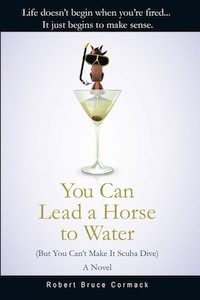Why Successful People Like Quiet

We’ve come a long way since 1958 when David Ogilvy brought us the most famous line in advertising:
“At 60 miles an hour the loudest nose in this new Rolls-Royce comes from the electric clock.”
Back then, of all the remarkable things Ogilvy could say about the Rolls-Royce, what he figured the upper-elite craved most was silence.
Forget that in 1958, we didn’t have the technology or connectivity we have today. Forget that it wasn’t even his line (he took it from the Technical Editor’s write-up in The Motor). What Ogilvy expressed was a concept that was truly revolutionary at the time (at least in advertising): Successful people like quiet.
Not all successful people like quiet. Football stars, for instance, still like a full quad, 2,000 watt, quad stereo system with fifteen subwoofers. Boxers have taken so many hits to the head, they find that 200 watts sounds like 2,000 watts, so they’ve downsized considerably.
For the most part, though, success is a cerebral business where ideas are born more out of solitude than playing Grand Theft Auto. We don’t all thrive on solitude, but certainly more innovations have been realized in quiet rooms than at Oktoberfests.
This gets argued about all the time, particularly by psychologists and authors who either love solitude or hate it. An interesting slinging match took place between Susan Cain (author of Quiet: The Power of Introverts in a World That Can’t Stop Thinking), and Dr. Keith Sawyer (author of Group Genius).
Outside of them promoting their books, they really take exception to each other’s views about isolated and collaborative thinking, especially when they talk about Apple founders, Steve Wozniak and Steve Jobs.
Sawyer breaks it down as Wozniak being the introvert and Jobs being mad for groupthink. Both were actually introverted as hell. Jobs could hang with the best of them, but he valued solitude—even in a crowded room.
Many Apple employees admit that Jobs could detach himself, going into a sort of reverie. That’s another neat trick of introverts like Jobs. They can find solitude anywhere and still come off looking like collaborative extroverts. In fact, he wasn’t collaborating as much as insinuating. Like other brilliant introverts, he insinuated his ideas. Others turned those into innovation—including Steve Wozniak.
The truth is, it doesn’t matter whether a person is an introvert or an extrovert. It’s about whether the person understands the importance and value of quiet.
“Quiet people have the loudest minds,” Stephen King once said but, again, that’s not what defines success. Some of our “loudest minds” lived and died in abject poverty, while big mouths like, I don’t know, George Bush, found success and prosperity—even becoming President of the United States—which is still baffling.
Quiet is, in fact, a tool any of us can use, and it’s historically significant that our greatest thinkers made their discoveries during periods of solitude.
Einstein wasn’t so much an introverted thinker as a someone who simply understood the power of thinking in isolation. He didn’t mind discussing his theories with other scientists, but it was in solitude that he found his greatest happiness—and greatest ideas.
J.K. Rowling came up with Harry Potter on a four-hour train ride to Manchester, but she could have come up with it in, say, the bath. It as already there in her mind. Any quiet place would have done the job.
Would Beethoven have created “Ode to Joy” if he hadn’t been deaf? Would Newton have figured out gravity if he hadn’t been sitting alone under a tree? I guess someone could have beaned him on the head with an apple, but he’d still have to rationalize why the apple went down instead of up—which I doubt would have happened at an Oktoberfest (if they even had them back then).
My point is, quiet allows for dissemination, just as sleep provides the brain time to put thoughts in order. Believe it or not, it also makes the brain stronger.
Neuroscientists have found that monks who spend years in quiet meditation actually grow their brains (the prefrontal cortex), like an athlete builds biceps. If you notice, the Dali Lama actually has a pretty big head.
For people who prefer groupthink, solitude runs contrary to everything they believe. As Mike Myatt pointed out in Forbes Magazine, consensus-builders focus on inclusion more than the task at hand. Hours of discussion can seem productive, but often agreement achieves nothing more than agreement. Myatt even contends that: “Consensus thinking is devastating to all things productive.”
If we look at Japan during the seventies and eighties, they prided themselves on consensus. Things were good, the economy was good, everyone thought that was the way to go. Then the Japanese economy started to fail. While everyone was great at inclusion and agreeing, they were terrible at coming up with ideas. They simply weren’t able to think individually (even when they were offered monetary incentives).
Someone posted a graphic on LinkedIn that said: “Good Things Come to Those Who Wait. Beneath it was this: “Good Things Come to Those Who Work Their Asses Off And Never Give up.”
A woman posted a comment that said: “Good things come to those that work together.”
Based on the Japanese experience, I’m surprised someone didn’t respond to her comment with this graphic: “Bad Things Come To Those Who Agree A Lot.”
For the extrovert, groupthink will always be preferable. If quiet contemplation makes the brain bigger, the extrovert will contend that a big head isn’t all that attractive. It also makes you look like a nerd. Far better that everyone has the same sized heads and the same thoughts.
Besides, solitude is highly overrated, they’ll say. They’ll contend that a room full of people agreeing is reflective of society. Isn’t it true that we don’t do anything until everyone else is doing it?
So what can solitude and reflection possibly offer that consensus can’t?
Well, the personal computer you’re working at now, it didn’t come from Jobs networking or rubbing shoulders with the folks at Xerox, as Dr. Keith Sawyer wrote. Those collaborations produced additions (like icons). The personal computer came from one man believing that computers could fit on someone’s desk. That man was Steve Wozniak, introvert.
His advice? “Work alone.”
If you have your own thoughts or experiences related to quiet, let me know. I can be reached at: rcormack@rogers.com
Robert Cormack is a freelance copywriter and blogger. His first novel: “You Can Lead a Horse to Water (But You Can’t Make It Scuba Dive) is now available online and at most major bookstores. Check Yucca Publishing or Skyhorse Press for more details.

Articles from Robert Cormack
View blog
In honour of Women's Day, let's see which is more offensive. · “Life is tough, darling, and we’d bet ...

Or is it us? (It's us). · “I intend to live forever, or die trying.” Groucho Marx · I didn’t want to ...

Is “Succession” explaining Russia's leader better than the media? · “In modern war, you will die lik ...
Related professionals
You may be interested in these jobs
-
Case Coordinator, SMILE Program
Found in: Talent CA C2 - 6 days ago
VON West Nipissing, Canada Temporary, Full timeDescription · Position at VON Canada (Ontario) Requisition Details: · Employment Status: Temporary, Full Time (1.0 FTE) · Program Name: SMILE Program · Number of Hours Bi-Weekly: 75 · Work Schedule: Days Anticipated End Date: March 31, 2025 On-Call: No · Job Summary: The VON ...
-
food service supervisor
Found in: Talent CA 2 C2 - 1 day ago
849113 ALBERTA LTD. Grande Prairie, CanadaEducation: Secondary (high) school graduation certificate · Experience: 7 months to less than 1 year · or equivalent experience · Work setting · Restaurant · Tasks · Establish methods to meet work schedules · Supervise and co-ordinate activities of staff who prepare and portion f ...
-
chef
Found in: Talent CA 2 C2 - 2 days ago
KOREAN BBQ GUI Kamloops, CanadaEducation: · Expérience: · Education · Secondary (high) school graduation certificate · Tasks · Supervise cooks and other kitchen staff · Prepare and cook food on a regular basis, or for special guests or functions · Arrange for equipment purchases and repairs · Estimate food r ...




Comments
Robert Cormack
7 years ago #10
don kerr
7 years ago #9
Robert Cormack
7 years ago #8
Robert Cormack
7 years ago #7
Robert Cormack
7 years ago #6
Silence allows the mind to work. It searches out tiny crevices. It's in those tiny crevices that real ideas are found. When we admire, say, the lyrics of John Lennon or Bob Dylan, they were mining those tiny crevices for years. Dylan found it amazing that most people in the world didn't even know about them. So many of us are "fools for noise." All it does it block out your ideas and your potential.
Robert Cormack
7 years ago #5
Nicely said, Melissa. Unfortunately, we're all consensus driven now, more so because we're led to consensus. Notice every time someone promotes a book, it's always by a "best selling author." It seems you can't be read these days without being a best selling author. Again, consensus. How many of these "best selling authors" are really "best selling authors"? Very few. But I understand the need for "consensus buying."
Robert Cormack
7 years ago #4
While I worked in advertising, I was surrounded by ringing phones, people talking and a constant barrage of emails. Since the last agency I was at was part of the WPP network, we had to work in open offices. Nobody got much done because nobody could concentrate. When I started my novel (at home) I began at 4:30 am and worked until noon. In three months, I accomplished more than five years at the agencies. Advertising isn't dying because the billings have dried up. Advertising is dying because of simple, unadulterated stupidity. Nobody thinks because nobody works in an environment that allows them to think.
Robert Cormack
7 years ago #3
Robert Cormack
7 years ago #2
Kevin Pashuk
7 years ago #1